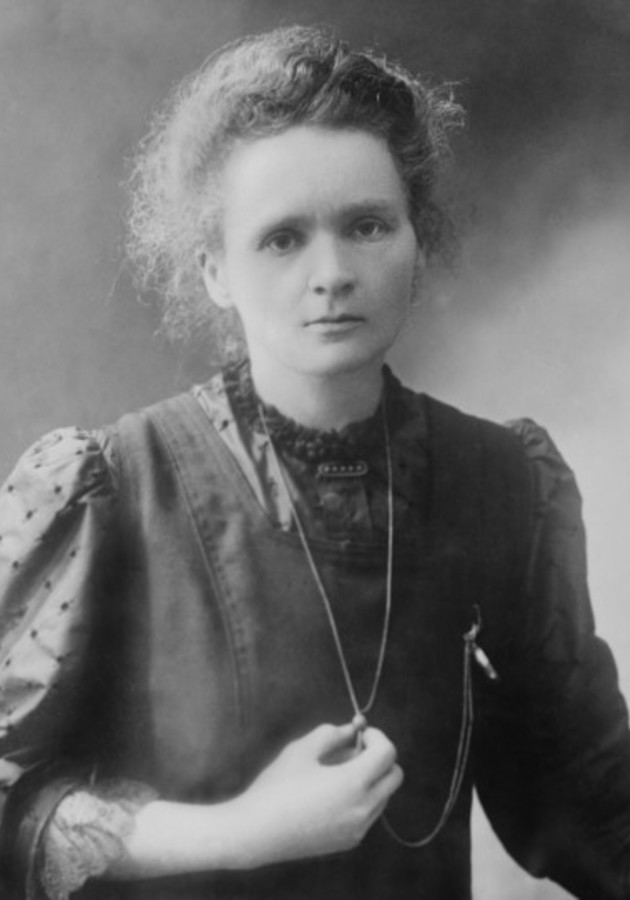People have never married less or divorced more than they do today: according to a recent survey, every second American marriage is bound to end in a divorce. In addition, 40 million adults in the United States age 18 and older – or close to 18% of its total population – are affected by one or more anxiety disorders; almost half of them suffer from depression, the most common mental illness in the world and the leading cause for disability in the U.S. for ages 15 to 44.
Finally, in 2018, about 50,000 people decided to end their lives prematurely in the United States, which amounts to about 14 people per 100,000 citizens. As bad as that sounds, believe it or not, it’s even worse globally, as there are more than 30 countries with higher suicide rates!
In his 1999 classic, “Life Strategies,” Phillip C. McGraw – celebrity clinical psychologist better known as Dr. Phil – describes this dismal state of human societies as the final outcome of “an epidemic of unhappiness,” a disease much less known to people before we entered the second half of the 20th century. Ironically, the things that were meant to put an end to this frightening epidemic – antidepressants and self-help books – may have contributed to its reinvigoration: stats show people being less and less happy, even though more and more of them buy anti-anxiety medicines and self-improvement books.
According to Dr. Phil, the problem is that – thanks to so many technological advancements – our societies are nowadays more fragmented than ever, and most of the advice floating around forgets to mention the fact that happiness is an inter-relational phenomenon. For example, to Dr. Phil’s dog, Barkley, happiness might mean being scratched and patted under a coffee table, but unless he finds someone to do that, he will probably never attain happiness or understand why something is missing from his life.
Finding out what you as a unique individual really want, and placing it in a proper interhuman context, is the last stage of Dr. Phil’s refreshingly realistic, pragmatically sound and necessarily down-to-earth 10-step journey toward reinventing yourself. We cordially invite you to join us as we take it in this summary – who knows, it might end up being a life-changing journey for you!
Life Law No. 1: You either get it, or you don’t.
Strategy: Become one of those who gets it.
Sir Francis Bacon firmly believed that knowledge is power. Four centuries after him, we just seem to repeat this phrase without actually understanding it, let alone employing it in our lives. Dr. Phil advises you to start doing that right now if you want to change your life for the better. So, starting this very moment, become a student of human nature. And, no, we don’t mean taking up an anthropology class, but, simply, paying more attention to your own behavior, whether your instinctual actions or your decision-making processes.
Most people are quite similar to one another and share some common traits, from the inevitable interest in their own well-being through the fear of being rejected, to the need for acceptance. By scrutinizing yourself, you’ll eventually learn more not just about yourself, but about other people’s behavior as well. That way, you’ll start getting the unwritten “rules” of interpersonal relationships and become more connected.
Life Law No. 2: You create your own experience.
Strategy: Acknowledge and accept accountability for your life.
We live in an age of widespread victimhood: everybody thinks that it is someone else’s fault for misfortunes of their own. It is easier that way, isn’t it? Pop psychologists can earn lots of money by telling you that you are perfect and that other people’s imperfections are the ones for ruining your life. And you – well, you can wallow in your helplessness while being cradled like a baby by your surrogate parent, not realizing that you’ve inadvertently subscribed for a lifetime don’t-grow-up therapy.
“You will never, ever fix your problems by blaming someone else,” doggedly retorts Dr. Phil. “That is for losers,” because winners accept accountability. People make mistakes, but regrets can always be reinterpreted as lessons. Whether good or bad, your life is essentially yours, and it’s time you started acting that way. As that famous Victorian poem says: “you are the master of your fate, you are the captain of your soul.”
Life Law No. 3: People do what works.
Strategy: Identify the payoffs that drive your behavior and that of others.
Socrates and Plato believed that humans act faultily because we don’t know any better. If we knew for sure that something would be bad for us in the long run, we would stop doing that thing immediately.
Unfortunately, both Socrates and Plato were very wrong: even the most damaging behaviors have some payoff. Smokers know better than to smoke, but cigarettes calm them down; workaholics know better than to stress over work at midnight, but probably they enjoy being praised by their superiors; dieters know better than to overindulge, but the taste of pizza on their tongue makes a happy day happier and a rubbish day worthwhile.
The point is, the payoffs we get from certain behaviors shape our attitude toward these behaviors. However, most of these payoffs are not conscious. Bringing them to light is the first step toward understanding why you act a certain way you think you don’t want to. Changing is not that difficult afterward. Speaking of...
Life Law No. 4: You cannot change what you do not acknowledge.
Strategy: Get real with yourself about life and everybody in it.
Be truthful to yourself about what isn’t working in your life: there’s a thin line between lying to everybody that everything’s fine and forgetting that it is not when you are alone. As the great American physicist Richard Feynman said in a famous lecture, “the first principle is that you must not fool yourself – and you are the easiest person to fool.”
True, sometimes fooling yourself – for example, confabulating traumas into bearable stories – can be helpful, but most of the time, facing your demons is the right way to go. Denial, rationalization, and minimization have helped nobody. On the contrary, they regularly lead to an overwhelming feeling of aloofness in individuals and, more importantly, to the ignoring and discounting of possibly beneficial information to their wellbeing.
Life Law No. 5: Life rewards action.
Strategy: Make careful decisions and then pull the trigger.
The main difference between winners and losers is that winners tend to do things, while losers tend to think them through. Of course, we’re not saying you shouldn’t carefully consider an action before pulling the trigger – quite the opposite – but we are saying there’s a limit to how much time you should spend thinking about doing something.
At the end of the road, the people who succeed are not the wisest, most insightful, or the most capable people you know, but the people who dare. Remember: nobody cares about your intentions or your aims. As good and profound as they might be, critics can’t judge the quality of your debut novel based on how it looks like inside your head, but only based on how the words and sentences combine after being printed out in the form of a book. There’s a time for thinking things, and a time for doing things: find the balance between the two.
Life Law No. 6: There is no reality; only perception.
Strategy: Identify the filters through which you view the world.
It would be great if people were only wrong or right and if there was a transcendental set of criteria to determine which one. Unfortunately, in most of life’s complex situations – the ones that matter – none of the participants is either wrong or right: they just “see things differently.”
And, indeed, in life, it is often as if each and every one of us wears a different shade of lenses, unknowingly. Someone might tell you that something is blue, but why would you believe them if your own eyes tell you differently? The only way to rise above the misunderstanding is for both parties to recognize the existence of their glasses.
Of course, you can’t force other people to do this, but you can become an example by acknowledging the fact that everyone sees the world through a different set of filters. “You control your perceptions,” writes Dr. Phil. “Therefore, you control your interpretations of and attitudes about your life. That is power.”
Life Law No. 7: Life is managed; it is not cured.
Strategy: Learn to take charge of your life.
If your life was a business enterprise and you were its manager, what would you do differently to make the necessary adjustments and lead your company to success? Many things, of course.
First of all, you’ll probably devise a long-term strategy and assign precise and unambiguous milestones to help you along the way. Then, you’ll start analyzing which departments – i.e., which of your skills – are best suited to assist you in reaching the first milestone. Afterward, you’ll repeat the process for the next one, and so on. Also, you’ll probably constantly adjust your expectations given the inevitable impediments and, hopefully, unplanned ahead-of-schedule feats of courage and commitment.
Well, this is what taking charge of your life means. As any real-life business manager knows, no matter how well you plan things out, something bad is bound to happen at one point or another, tripping you when you least expect it. But when you have the reins in your hands, you can always make yourself get up once again and continue your journey toward greatness.
Life Law No. 8: We teach people how to treat us.
Strategy: Own, rather than complain about, how people treat you.
Even though you certainly enjoy some of the relationships in your life, there may be at least a few that dishearten your whole being. The good news is that you can always renegotiate the rules of these relationships and get something out of them.
You see, people’s relationships are much like people’s behaviors: they are payoff based. In other words, people are treating you in a certain way because they get the payoff they want – precisely due to this treatment. As we advised you in the third law, the first thing you need to do to change this is identifying the payoff – which, in this case, means pinpointing how you are contributing to being treated badly.
To reopen the negotiations of the relationship in question, it’s enough to simply alter this behavior and deny your friend/spouse/relative the payoff they get from acting in a certain manner. That’s it: now you’ve challenged them to change as well.
Life Law No. 9: There is power in forgiveness.
Strategy: Open your eyes to what anger and resentment are doing to you.
Throughout your life, you’ll inevitably come across one or two people who might hurt you just for the sake of hurting you. Understandably, some of these injuries may be unforgivable. Even so, you should dig down deep inside your soul and find the strength necessary to forgive your wrongdoers.
You see, forgiveness is only slightly about them, but entirely about you – the victim, the sufferer, the forgiver. Because by not forgiving, you allow the feelings of past anger and resentment to take hold of your life and nullify your engagement in your present. So, take back your power from those who have hurt you: forgive them and, that way, emerge innocent from your past, victorious, and ready to embrace the future.
Life Law No. 10: You have to name it before you can claim it.
Strategy: Get clear about what you want and take your turn.
Unless you are Dr. Phil’s dog, Barkley, your idea of happiness is certainly not lying under a coffee table while your belly is scratched by someone whose language you barely understand. But, then again, what is? It’s not enough just to say “All I really want in this life is to be happy!” – you have to define what being happy means to you as well. Be honest and specific. Only then you’ll be able to start devising the strategy we talked about in Life Law No. 7.
Final Notes
Like most self-help books, “Life Strategies” states that happiness starts with you. Unlike them, it doesn’t say that it ends with you as well or that changing your life is easy. It is, of course, one of the most difficult endeavors there is.
However, by admitting that you are the cause of your unhappiness, you’ve made a definite step from playing the victim to curving your mouth upward into a morning smile. And since Dr. Phil’s ten life laws aim to help you achieve precisely this type of transformation, we honestly feel that people should start revisiting it and use it as an inspiration against the widespread and overbearing culture of victimhood.
12min Tip
Be your own life’s general manager - starting now, with the all-important question: “What can I do today to make my life better?” The answer is your draft plan of action.





























